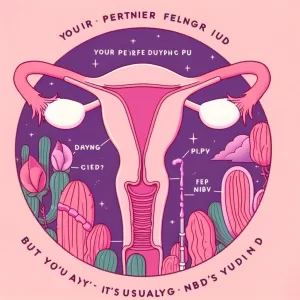Qu'est-ce que l'hypothyroïdie ?
[wp_show_posts id=””]
**What is Hypothyroidism?**
**Q: What is hypothyroidism?**
**A:** Hypothyroidism is a medical condition that occurs when the thyroid gland does not produce enough thyroid hormone. The thyroid gland is a small, butterfly-shaped gland located in the front of the neck that is responsible for regulating metabolism.
**Q: What are the symptoms of hypothyroidism?**
**A:** Symptoms of hypothyroidism may include fatigue, weakness, cold intolerance, constipation, weight gain, dry skin, menstrual irregularities, increased cholesterol levels, and depression.
**Q: What are the causes of hypothyroidism?**
**A:** The most common cause of hypothyroidism is autoimmune disease, known as Hashimoto’s thyroiditis. Other causes include thyroid surgery, radiation exposure, and certain medications.
**Q: How is hypothyroidism diagnosed?**
**A:** Hypothyroidism is diagnosed through a blood test that measures the levels of thyroid hormone in the blood. A physical examination may also be performed to look for signs of the condition.
**Q: How is hypothyroidism treated?**
**A:** Hypothyroidism is treated with thyroid hormone replacement medication, such as levothyroxine. The medication is typically taken orally once a day.
**Q: What are the complications of untreated hypothyroidism?**
**A:** Untreated hypothyroidism can lead to a number of complications, including:
* High cholesterol
* Heart disease
* Infertility
* Pregnancy complications
* Myxedema coma (a life-threatening condition)
**Q: How can I prevent hypothyroidism?**
**A:** There is no foolproof way to prevent hypothyroidism, but getting enough iodine in your diet can help maintain a healthy thyroid gland. Iodine is found in seafood, iodized salt, and dairy products.
**Additional Tips for SEO Optimization:**
* Use keyword-rich headings and subheadings (e.g., “Symptoms of Hypothyroidism,” “Causes of Hypothyroidism,” etc.).
* Include relevant keywords throughout the article in a natural way.
* Use synonyms and related terms for keywords (e.g., “metabolism” for “thyroid hormone”).
* Link to reputable sources of information on hypothyroidism.
* Use internal linking to connect related pages on your website (e.g., a page on “Thyroid Disease” could link to this article on ”Hypothyroidism”).
* Optimize the content for mobile devices.
**What is Hypothyroidism?**
**Q: What is hypothyroidism?**
**A:** Hypothyroidism is a medical condition that occurs when the thyroid gland does not produce enough thyroid hormone. The thyroid gland is a small, butterfly-shaped gland located in the front of the neck that is responsible for regulating metabolism.
**Q: What are the symptoms of hypothyroidism?**
**A:** Symptoms of hypothyroidism may include fatigue, weakness, cold intolerance, constipation, weight gain, dry skin, menstrual irregularities, increased cholesterol levels, and depression.
**Q: What are the causes of hypothyroidism?**
**A:** The most common cause of hypothyroidism is autoimmune disease, known as Hashimoto’s thyroiditis. Other causes include thyroid surgery, radiation exposure, and certain medications.
**Q: How is hypothyroidism diagnosed?**
**A:** Hypothyroidism is diagnosed through a blood test that measures the levels of thyroid hormone in the blood. A physical examination may also be performed to look for signs of the condition.
**Q: How is hypothyroidism treated?**
**A:** Hypothyroidism is treated with thyroid hormone replacement medication, such as levothyroxine. The medication is typically taken orally once a day.
**Q: What are the complications of untreated hypothyroidism?**
**A:** Untreated hypothyroidism can lead to a number of complications, including:
* High cholesterol
* Heart disease
* Infertility
* Pregnancy complications
* Myxedema coma (a life-threatening condition)
**Q: How can I prevent hypothyroidism?**
**A:** There is no foolproof way to prevent hypothyroidism, but getting enough iodine in your diet can help maintain a healthy thyroid gland. Iodine is found in seafood, iodized salt, and dairy products.
**Additional Tips for SEO Optimization:**
* Use keyword-rich headings and subheadings (e.g., “Symptoms of Hypothyroidism,” “Causes of Hypothyroidism,” etc.).
* Include relevant keywords throughout the article in a natural way.
* Use synonyms and related terms for keywords (e.g., “metabolism” for “thyroid hormone”).
* Link to reputable sources of information on hypothyroidism.
* Use internal linking to connect related pages on your website (e.g., a page on “Thyroid Disease” could link to this article on ”Hypothyroidism”).
* Optimize the content for mobile devices.
Un commentaire
Laisser un commentaire
Articles populaires







#hypothyroidism #thyroid #health